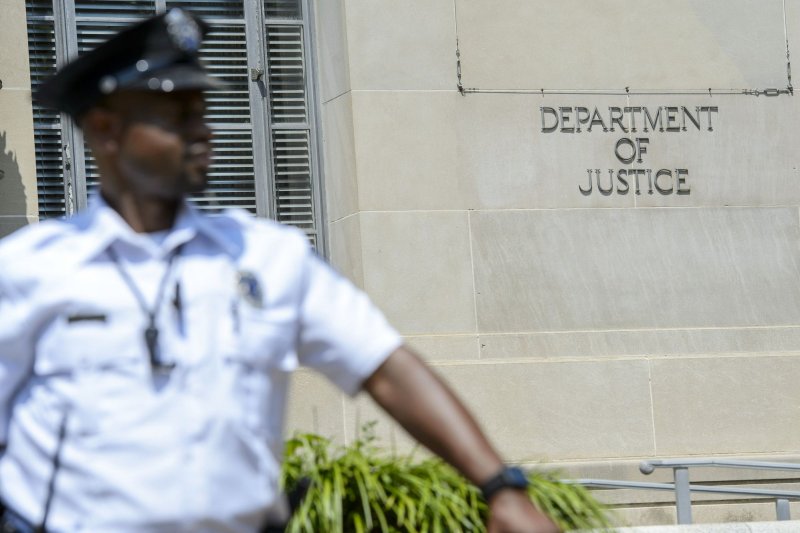Bobby Fischer inspired millions to play chess, then decided to stop playing
Fifty years ago this week, Bobby Fischer was crowned world chess champion. He arrived more than an hour late for his own ceremony.
It seemed to sum up the enigma that was Fischer, the bad boy of American chess who both inspired and enraged chess fans everywhere. The first American world champion in a century, he defeated Boris Spassky of the Soviet Union in a legendary Cold War match in Iceland.
I was a student at the time, working in Europe for the summer, and lucky enough to attend four games of the historic match.
Fischer came home to a hero’s welcome, making appearances on the Johnny Carson show and on the covers of Sports Illustrated and Life magazines. His inventive play and success at the board inspired a whole new generation of people to take up the game.
But Fischer had a reputation for being difficult and petulant. When he was handed his gold medal at the world championship ceremony, he inspected the prize and said: “It doesn’t have a name on it.”
Fischer slowly descended into seclusion and paranoia, refusing to defend his title or make public appearances. He played just one more serious match in his life.
Bobby Fischer died in 2008 at the age of 64, having lived one year for every square on the chessboard.
Bobby Fischer v. Ruben Shocron, Mar del Plata, 1959
:format(jpeg)/cloudfront-us-east-1.images.arcpublishing.com/tgam/DG6XLDIXEJBIPGFSVSJZ6W7LME.png)
HANDOUT
Bobby as White has just won a piece, but his Rook is pinned and looks lost. What does he do?
25 years later: Deep Blue vs Kasparov
by ChessBase
9/3/2022 – Last week BBC Four brought together a group of personalities that, 25 years ago, were part of the epic struggle between the reigning World Champion and a million-dollar computer built by IBM. The broadcast reunited the chess masters and AI pioneers who went into battle at the time, to test the limits of human and artificial intelligence. You can listen to the 42-minute discussion and read experts.
.jpeg)
Deep Blue v Kasparov
BBC Four, the British free-to-air television channel, hosted the discussion as part of their Reunion series. The battle of man vs machine took place in New York, 25 years ago. IBM had proposed a six-game match, which was held in a hushed room while a packed audience watched it broadcast on large screens a few floors below. Every move was streamed online, threatening to crash a fledgling Internet.
Over the tense nine days, the mood turned from anticipation to suspicion to bewilderment. Not only would the world of chess never be the same again, but the balance of power between humans and computers seemed to have shifted irrevocably. Was it the dawning of a new age?
In the BBC Four broadcast Kirsty Wark reunites the chess masters and AI pioneers who went into battle to test the limits of human and artificial intelligence:Frederic Friedel, advisor to Garry Kasparov;
Malcolm Pein, Kasparov team member and IBM consultant;
Murray Campbell, co-creator of Deep Blue;
Joel Benjamin, IBM’s official grandmaster consultant;
Maurice Ashley, Grandmaster, author and commentator, who covered the big match;
Steven Levy, Editor at Large at Wired Magazine, who scooped the front cover for Newsweek.
The producer of the A Whistledown production for BBC Radio 4 was Ruth Abrahams, the series Producer David Prest. You can follow the entire 42-minute discussion here:

Here are some excerpts from the discussion:
Kirsty Wark: The match was held on the 35th floor of a skyscraper in New York. It was one of those landmark challenges in the spirit of the famous Touring Test of 1950 – humanity's last chance to prove itself before computers outstripped us forever. Deep Blue was housed in twin black cabinets weighing 1.4 tonnes and evaluating 200 million chest positions per second.
Murray Campbell [computer scientist at IBM, and co-creator of Deep Blue] when did you first become interested in chess?
Murray Campbell: I was a chess player from quite a young age and was looking for what to study in college. I discovered a computer that could play chess. That inspired me to go into computer science. Deep Thought was created by a group of graduate students at Carnegie Mellon University in Pittsburgh. It was sort of a fun project, something that we did for a lark.
KW: Frederick Friedel [co-founder of ChessBase], how did you meet Garry Kasparov?
Frederic Friedel: It was in 1985 when he came to Hamburg. I had written him a fan letter and he said he wanted to meet me. We sat together every evening for a whole week. I told him what a computer can do, and he would tell me what a computer should do for chess. We designed a plan, one that changed chess completely.
Malcolm Pein: In 1993 I was commercializing the sale of this chess database that Frederic referred to. All of a sudden we became so much more powerful, we could learn at a much faster rate. In a sense, computers enabled us to completely democratize chess...
KW: Frederick Friedel, how did you and Kasparov prepare for the match?
FF: I didn't dare to tell him you must play an Open Spanish and things like that. I just said think about it please, isn't it better not to play anti-computer chess because you're not very good at it.
Maurice Ashley: [commentator at the Deep Blue-Kasparov match] We were all consistent with the same idea: Garry is too good for this computer. We were all confident that he was simply going to dominate this machine. It did not rise to the level of the greatest entity playing chess on the planet.
Joel Benjamin: [grandmaster, part of the Deep Blue team] I was obviously not happy about losing the first game, but I felt that Kasparov was going to get overconfident, especially because in general he's a very confident person he thinks he can solve any kind of problem.
BBC4: On the fourth of May, following his win the previous day, Kasparov was feeling in control. Then came the shock: Kasparov lost game two he resigned in the middle of what he considered a hopeless situation, instead of fighting for a draw. It represented a steep change in the way that computers played chess. This was not a computer type game, this was real chess. Deep Blue's sudden strategic play was gnawing away at Kasparov's mind.
FF: The mood after that second game was just pure devastation. We didn't know what had happened, and just moaned and groaned the entire evening. Then the next morning I had a conversation with Malcolm and with ChessBase, and they revealed to me that in the final position Garry could have drawn. I showed it Yury Dokhoian, Garry's second, and now came the question: who's going to tell Garry? Yuri said "okay I'll tell him." We were walking down the street, and he went to Garry and started to explain in Russian. Garry was petrified.
JB: The move that really frightened Kasparov was a bug [in the first game]. That was the thing it wasn't supposed to do. So it's very bizarre that the computer freaking out actually helped us.
FF: Garry became very nervous about game two. He wanted printouts so that you can check whether they cheated or not. IBM said no. He was psyching himself out. Suddenly there was a lot of animosity. Garry expected a rematch – he'd won the first one in 1996, and lost the second one in 1997. He expected a new match, but they refused. The mood changed dramatically.
MA: The audience's mood after game six: stunned, shocked. I think those of us who had this the sense of the invincibility of Kasparov, suddenly it seemed like something had happened, not just to him but really to humanity itself. The terminator had arrived.
MC: I'd been building to the moment for decades, and it was somewhat tempered by the fact that I had been accused of cheating, and it took 20 years for him to apologize and admit that there had been no cheating.
KW: Frederic Friedel, what was your sense of the role of computers in chess after Deep Blue?
FF: Garry didn't believe that he'd been beaten by a stronger entity than himself, but he knew that's going to come. Immediately after this we started discussing what can we do about it. One of his ideas was "Advanced Chess", which is a human and a computer playing against a human and a computer. This would make the system stronger than the human or the computer alone.
MC: I remember shortly afterwards the match a former US champion came to me he said "I'm giving up chess, it's finished now, with Deep Blue having defeated Garry. I said, "well a Ferrari is faster than Linford Christie, that doesn't mean that athletics is gone. All computers are really doing are enhancing our understanding of the game.
Steven Levy: [American journalist, NYT, Newsweek, etc] This is all the history of AI. Every time a computer does something that people say you're not going to get from an AI computer, they go on to the next thing. To me, the story wasn't about chess, it was a story about AI and our relationship to our overlord to be.
FF: I spent two and a half weeks in the Plaza Hotel with Garry. We had breakfast, lunch and dinner together. I went through all the high moments and especially the devastating moments. If you ask me would you like to do it again, I would say probably no. It was very taxing...









